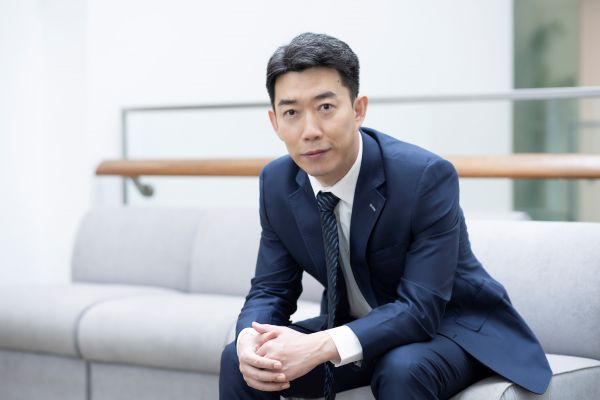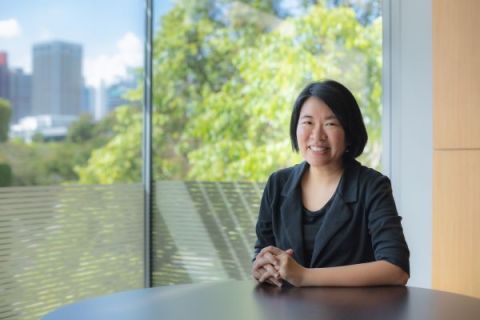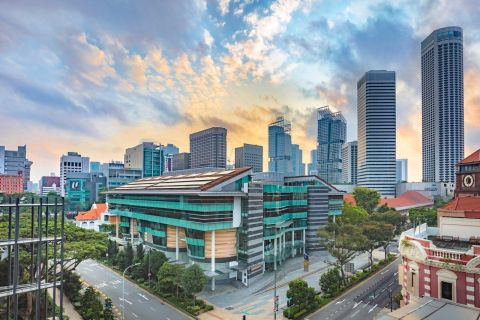
By Alvin Lee
SMU Office of Research Governance & Administration – The 2013 Oxford University-published paper, “The Future of Employment: How Susceptible are Jobs to Computerisation”, raised fears of AI replacing humans in the jobs market. Among the occupations that could be ‘computerisable’, the probability of accountants and auditors at risk were estimated at 0.94, i.e., a 94-percent chance.
It is now clear that accountants have not been replaced by AI, and the major accounting firms are actually increasing their hiring. In the World Economic Forum’s (WEF) The Future of Jobs Report 2025, accountants and auditors are firmly in the top 30 most stable jobs despite minimal growth in demand for accounting professionals in the next five years.
“AI, particularly generative AI and autonomous agents, will continue to reshape accounting work,” observes Professor Zhang Liandong, who started his stint as the Dean of SMU’s School of Accountancy (SOA) on July 1. “Routine tasks will be automated, but that only increases the need for skills AI cannot replicate: critical thinking, ethical judgment, and effective communication. Accountants must learn to interpret AI outputs, challenge them, and make sound decisions. At SMU, we’ve long emphasised these ‘human” skills’ – this is where our graduates will stand out.
“AI should not replace core accounting education but complement it. Our goal is to train accountants who understand how AI works, can interpret its outputs, and can use it responsibly. We teach AI as a tool, but it’s human intelligence, ethics, and critical thinking that will always define the profession.”
He adds: “Technology is transforming accounting into a more data-driven, analytical discipline. AI and automation can enhance efficiency and accuracy, allowing accountants to move from manual reporting to strategic insight. For instance, in auditing, AI enables full-population testing rather than sampling, improving fraud detection and audit quality. But technology also requires accountants to exercise judgment, ensuring algorithms serve fairness and integrity.”
Accounting for impact
Professor Zhang assumes the mantle of Dean from Professor Cheng Qiang, who had built up SOA’s reputation by beefing up the school’s strengths in accounting data and analytics, foreshadowing the increasing role technology would play in accountancy. Dean Zhang intends to build on SOA’s strength to amplify its research impact.
“My vision is to position SMU’s School of Accountancy as Asia’s most impactful accounting school: one that produces rigorous and impactful research and graduates who combine technological capability with a strong sense of purpose and integrity.
“Our research will focus on how emerging technologies such as AI, data analytics, and automation transform business efficiency and quality of life, and just as importantly, how we can address their unintended consequences, such as inequality, misinformation, or ethical risks. These topics matter because the accounting profession sits at the intersection of business, society, and trust.”
He adds: “SMU aims to be Asia’s leading hub for accounting education and research, bridging East and West. We collaborate with global institutions and industry partners to address issues such as sustainability reporting, AI governance, and digital finance. Through our alumni, partnerships, and research networks, we connect Singapore and Asia to the global conversation on the future of accounting.”
To address current and anticipated issues that impact the world, SOA launched the Sustainability Accounting Track in August. Given the increasingly noticeable effects of global warming in Southeast Asia, this is especially relevant. Professor Zhang explains it also comes on the back of requests for specific accountancy expertise from industry.
“The Sustainability Accounting Track was launched in response to growing demand for professionals who understand both financial and non-financial performance,” notes the Dean. “Sustainability transformation begins with measurement, and accountants are the best equipped to measure what matters. By combining accounting expertise with sustainability knowledge, our graduates can help businesses transition toward more responsible and resilient models.”
SOA’s focus on developing expertise in harnessing AI speaks to its responsiveness to industry needs. Professor Zhang emphasises that it reflects the school’s commitment to real-world impact, but urges recent and not-so-recent graduates to constantly refresh their skills.
“Keep learning, not just new technologies, but also new ways of thinking,” the Dean says. “Lifelong learning is not optional in this era. Stay curious, adapt quickly, and return to school when needed to refresh your knowledge. But above all, face change with a cool head and a warm heart – use your skills for good, uphold integrity, and help build trust in a rapidly changing world.”
Back to Research@SMU November 2025 Issue
See More News
Want to see more of SMU Research?
Sign up for Research@SMU e-newslettter to know more about our research and research-related events!
If you would like to remove yourself from all our mailing list, please visit https://eservices.smu.edu.sg/internet/DNC/Default.aspx

